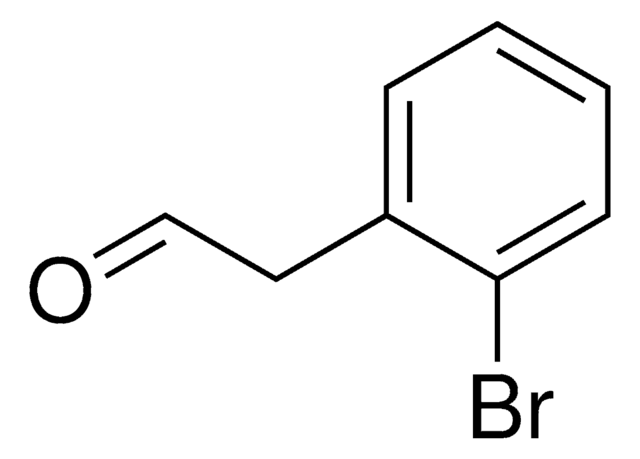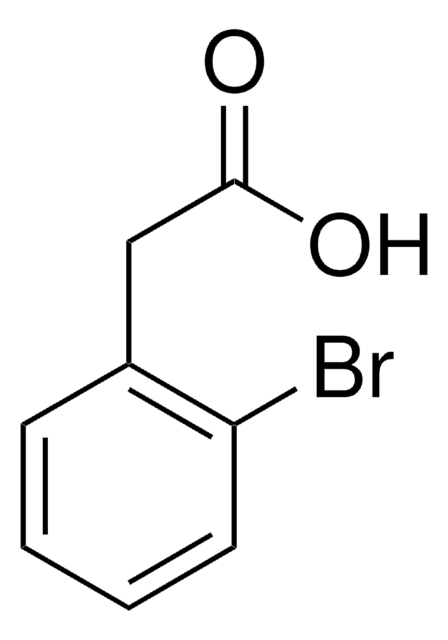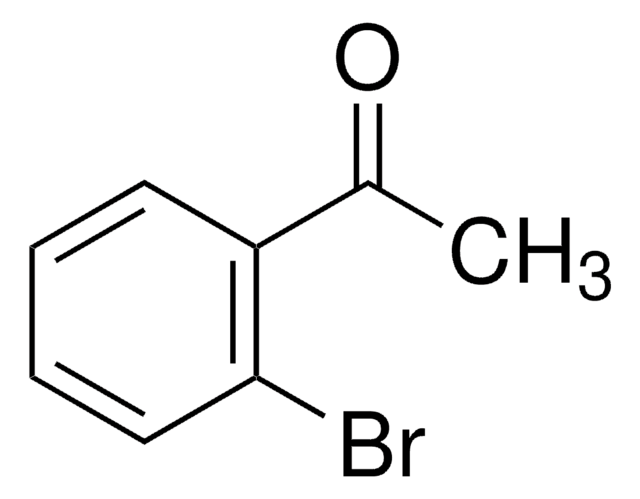All Photos(1)
About This Item
Linear Formula:
BrC6H4CH2CH2OH
CAS Number:
Molecular Weight:
201.06
MDL number:
UNSPSC Code:
12352100
PubChem Substance ID:
NACRES:
NA.22
Recommended Products
Quality Level
Assay
99%
refractive index
n20/D 1.577 (lit.)
bp
97 °C/0.7 mmHg (lit.)
density
1.483 g/mL at 25 °C (lit.)
SMILES string
OCCc1ccccc1Br
InChI
1S/C8H9BrO/c9-8-4-2-1-3-7(8)5-6-10/h1-4,10H,5-6H2
InChI key
ADLOWZRDUHSVRU-UHFFFAOYSA-N
Related Categories
General description
2-Bromophenethyl alcohol is a phenethyl alcohol derivative. It participates in the preparation of novel P-chirogenic phosphines with a sulfur-chelating arm (P*,S-hybrid ligand).
Application
2-Bromophenethyl alcohol is used as an end capping reagent during the synthesis of rod-coil block copolymers and also as a test compound in the study to evaluate the potential Aedes aegypti repellent chemotype.
Storage Class Code
10 - Combustible liquids
WGK
WGK 3
Flash Point(F)
Not applicable
Flash Point(C)
Not applicable
Personal Protective Equipment
dust mask type N95 (US), Eyeshields, Gloves
Certificates of Analysis (COA)
Search for Certificates of Analysis (COA) by entering the products Lot/Batch Number. Lot and Batch Numbers can be found on a product’s label following the words ‘Lot’ or ‘Batch’.
Already Own This Product?
Find documentation for the products that you have recently purchased in the Document Library.
Customers Also Viewed
Modular P-Chirogenic Phosphine-Sulfide Ligands: Clear Evidence for Both Electronic Effect and P-Chirality Driving Enantioselectivity in Palladium-Catalyzed Allylations.
Bayardon J, et al.
Organometallics, 34(17), 4340-4358 (2015)
Polina V Oliferenko et al.
PloS one, 8(9), e64547-e64547 (2013-09-17)
Molecular field topology analysis, scaffold hopping, and molecular docking were used as complementary computational tools for the design of repellents for Aedes aegypti, the insect vector for yellow fever, chikungunya, and dengue fever. A large number of analogues were evaluated
Wen-Chung Wu et al.
Langmuir : the ACS journal of surfaces and colloids, 23(5), 2805-2814 (2007-01-26)
A combined theoretical and experimental investigation of conjugated rod-coil block copolymer brushes is reported. The theoretical study for the surface structures of rod-coil block copolymer brushes was established based on the simulation method of dissipative particle dynamics. The effects of
Our team of scientists has experience in all areas of research including Life Science, Material Science, Chemical Synthesis, Chromatography, Analytical and many others.
Contact Technical Service











